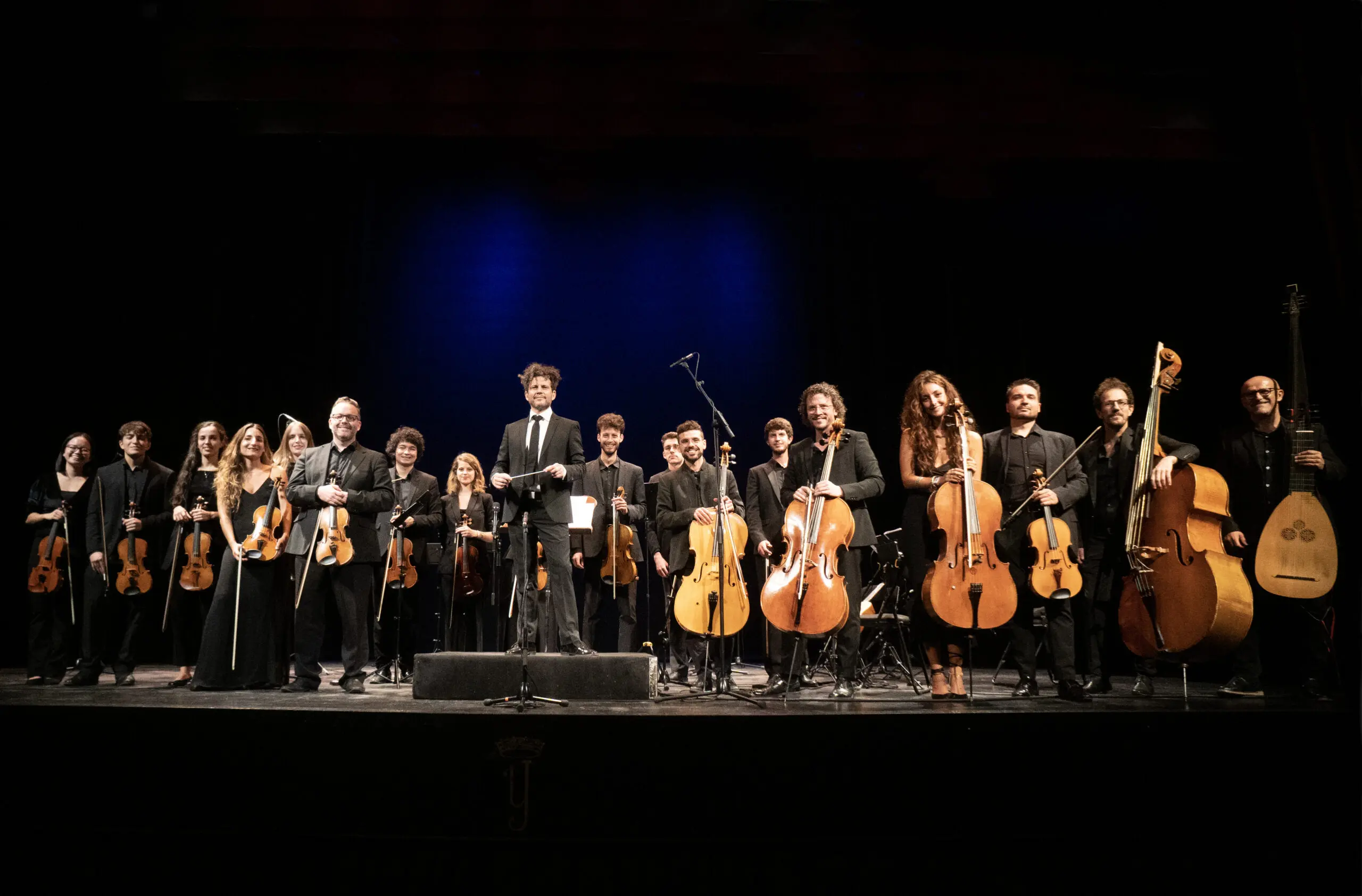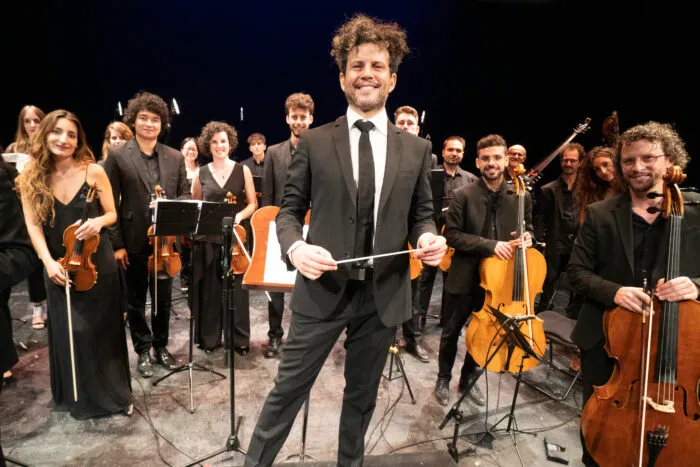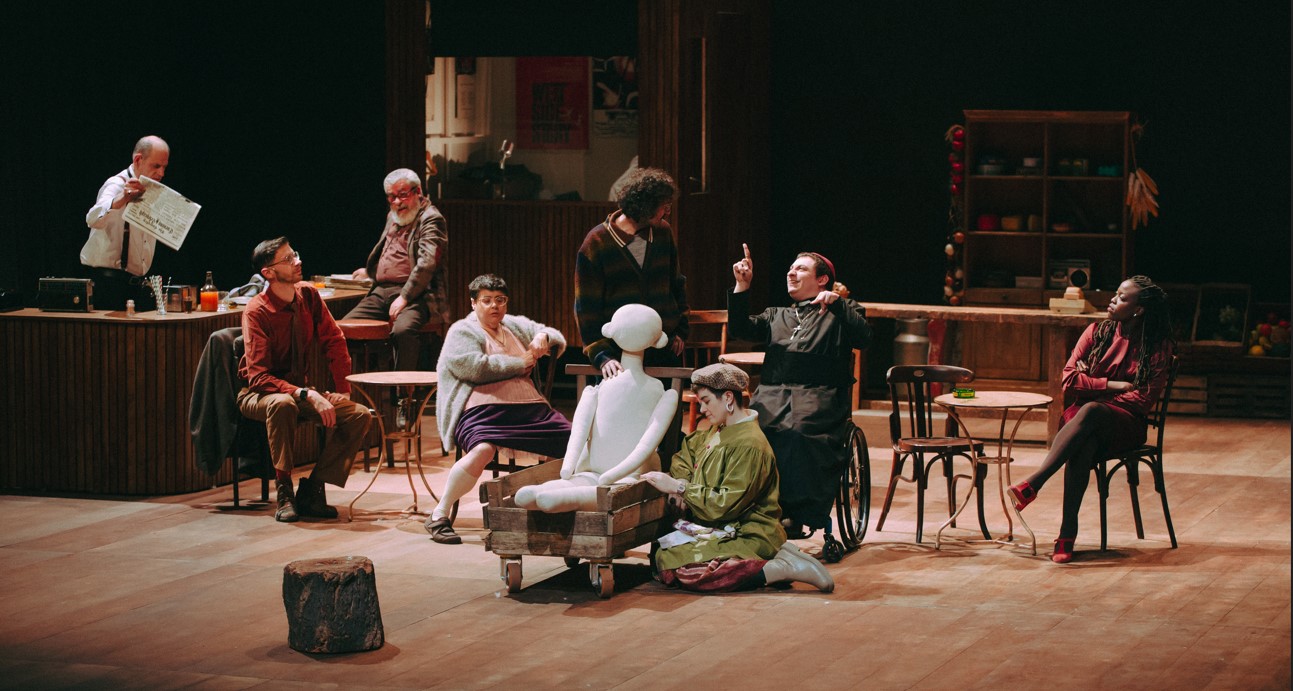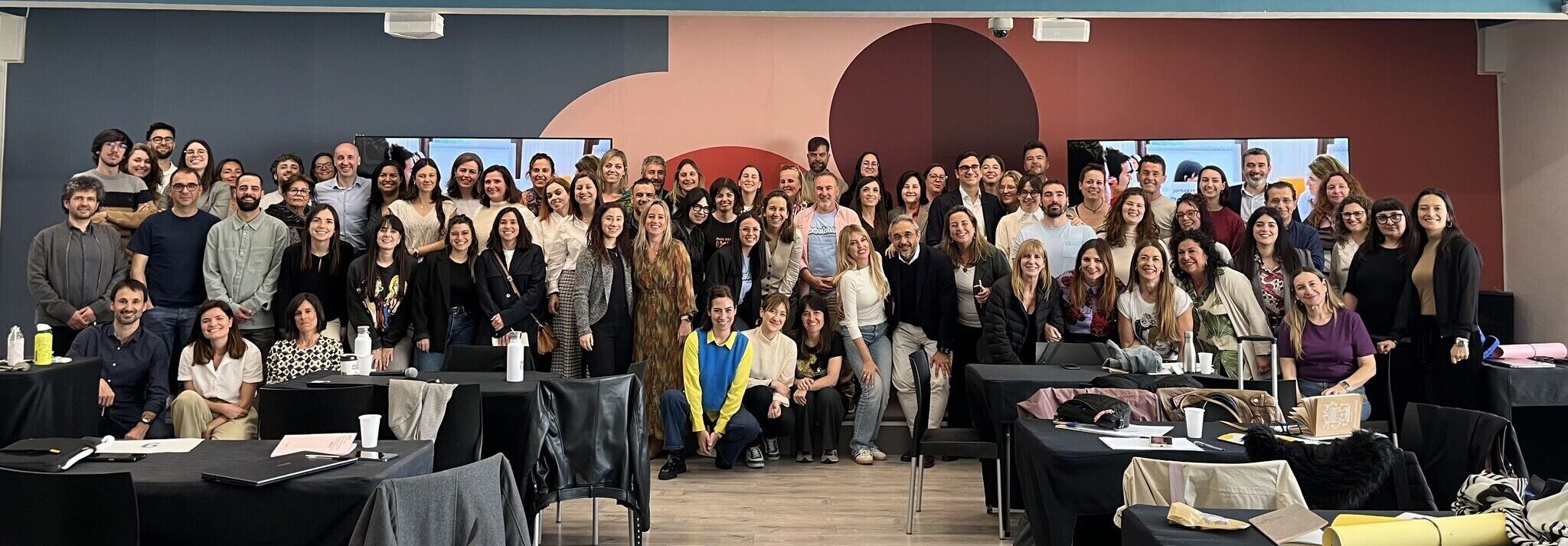
PHOTO: © José Zapata
Classical music is a cultural treasure that lives on for centuries, however, behind every great work there are composers and young talents working hard to make their voices heard. This is the context underpinning the creation of Camerata Garnati, a chamber orchestra that seeks to showcase composers and performers who have not yet received the recognition they deserve. The key pillars of this project are based on promoting young musicians, musical research and the dissemination of a hitherto unknown repertoire.
Pablo Martos is a violinist, composer and conductor. His tireless and creative spirit has led him to promote a range of projects such as the Garnati Ensemble which he founded together with his brother Alberto Martos. Pablo explains that the creation of Camerata Garnati arose from the worrying lack of job opportunities for high quality performing musicians. “From my experience as professor of violin at the Conservatorio Superior de Granada, I have seen that many students complete their degree studies, sometimes continuing their training in prestigious institutions abroad, and on returning to their home country they are unable to find an organisation with which to develop their professional careers.”
This concern is accompanied by his commitment to young talent: “I have always believed that young talent is important and necessary to move forward in the different aesthetic and performing arts, and to offer new approaches and perspectives in the performance of classical music.” In addition, thanks to his PhD research work and his collaboration with organisations such as Oe Oficina or ICCMU, he discovered some very high quality works that form part of the musical heritage of our country which, as he explains to us: “…could bring new proposals to the usual programming cycles, awakening curiosity among the public to learn about the musical heritage that forges the identity of their own history.”

The work carried out under this initiative gives each young musician the necessary tools, both in terms of training and professional experience, to build a real bridge between their studies and the labour market through training scholarships subsidised by the orchestra itself. Pablo explains to us that the profile sought for Camerata Garnati is one of “flexible performers who are willing to base their interpretation on a very specific philosophy.” These are “young people who, although they are already professionals and have completed their studies, have not yet found their place in the labour market. The team is complemented by other professionals with more artistic experience who advise them.”
The young talents awarded these scholarships receive instrumental classes given by orchestra soloists and by the incumbent conductor Pablo Martos himself, and they participate actively in rehearsals, taking the opportunity to work on a hitherto unknown repertoire.
This year, on 22 September, the 15 young musicians awarded scholarships, as well as other more established and renowned musicians, performed a concert at the Teatro Isabel la Católica. Their programme entitled “The edge of the world” began with a baroque overture of Spanish composer García Fajer, composed in the Italian style, and continued with a performance of Vivaldi’s “Autumn”, to welcome in this new season with one of the most iconic works in the history of classical music.
Pablo stresses that the concert “was a great achievement in view of the level of artistry on display and the social repercussions of the event. Many members of the audience expressed their enthusiasm, not only through their vigorous applause, but also by meeting the musicians after the concert to congratulate them. They told us it had been exciting to attend a world première, as was the case in the work of José Luis Greco, and that the music had moved them, something quite unusual to hear about contemporary creative work. Others remarked how interesting it was to be introduced to the work of little-known Spanish composers, and that this was a totally new approach.”
With regard to the artistic improvement of the scholars, Pablo adds that “it has been truly remarkable. We have seen that outside of an academic environment and working directly in a professional environment, the progress has been exponential”.
Lucía Fornell, second violin in Camerata Garnati shares her experience of the project with us: “The fact that we are a relatively small group means that we can work on very specific things, beyond the score and even beyond the music, dealing with philosophical concepts or musical concepts that are so enriching for people like me who have recently completed our official academic training”. For her part, Blanca Martín, a violinist by training, adds that “Unlike other groups, we also work on an individual basis, which is a unique opportunity.”
This initiative is not only about music, but also involves a strong commitment to social and educational development. Camerata Garnati is taking shape as a tool to develop socially responsible and sustainable projects, beginning with its work training these young musicians and establishing collaborations with a variety of NGOs.
Here at the Banco Sabadell Foundation, we had no hesitation in teaming up with this project, because of its work in the promotion of classical music and the inclusion of young talents in the world of musical performance.


